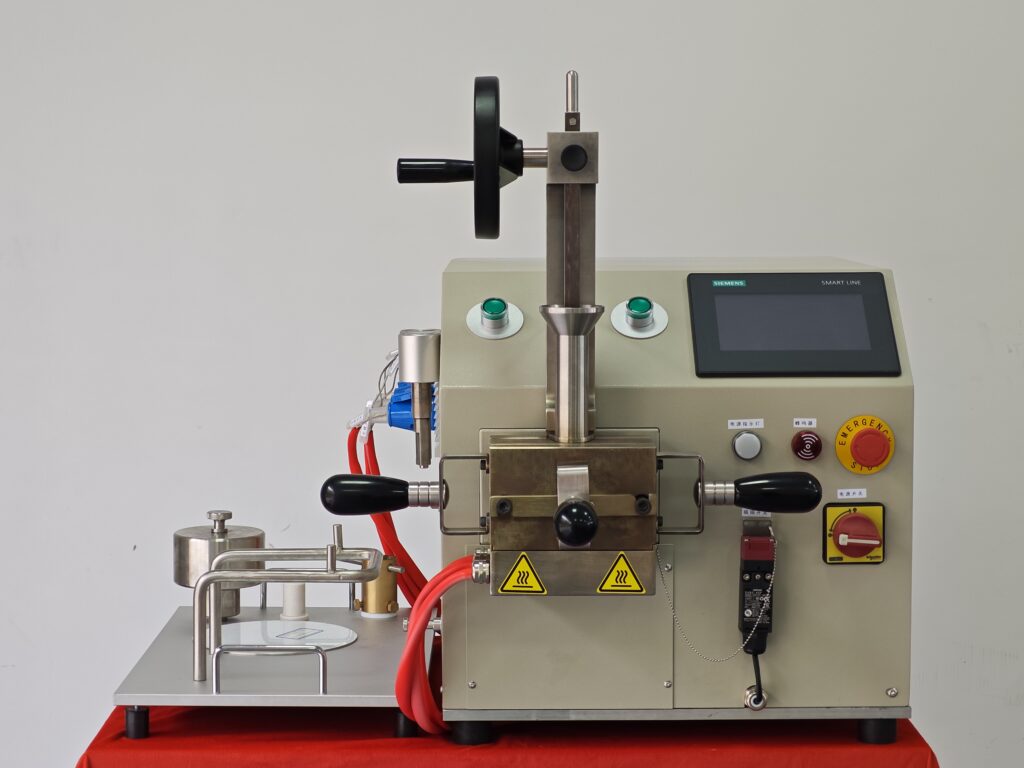The Banbury mixer is an essential piece of equipment widely used in the rubber and plastic processing industries. It is primarily used to mix and process various raw materials, such as rubber, plastic, and chemical additives, to form a homogeneous mixture, thereby studying its physical properties and chemical stability. The Banbury mixer plays a crucial role in tire manufacturing, rubber products, plastic products, and other fields.
Basic Structure of the Banbury Mixer
The Banbury mixer consists of the base, mixing chamber, rotor, drive device, and control system.
Base: The foundational structure of the Banbury mixer, providing support and stability for the equipment.

Mixing Chamber: The main area where raw materials are mixed and processed, usually composed of upper and lower parts, with sealing devices to completely enclose the raw materials within the mixing chamber.
Rotor: The rotating component installed inside the mixing chamber that generates shear and friction forces through rotation, thoroughly mixing the raw materials. The shape and structure of the rotor significantly impact the mixing effect.
Drive Device: Provides rotational power to the rotor, typically driven by an electric motor that transmits power to the rotor through a transmission system.
Control System: Used to monitor and control the operating parameters of the Banbury mixer, such as temperature, pressure, and rotational speed, ensuring the stability and efficiency of the mixing process.
Desktop Banbury Mixer (Front View)
Desktop Banbury Mixer (Side View)
Working Principle of the Banbury Mixer
The working principle of the Banbury mixer mainly involves the rotational motion of the rotor to mechanically shear, compress, and friction the raw materials, allowing them to mix thoroughly. During the mixing process, the raw materials are subjected to constantly changing stress and high temperatures within the mixing chamber, causing the materials to melt and mix thoroughly, forming a homogeneous mixture. The specific steps are as follows:
- Addition of Raw Materials: Pre-weighed raw materials are added to the mixing chamber through the feed inlet.
- Preliminary Mixing: The rotor starts rotating to initially mix the raw materials, ensuring even distribution.
- Heating and Plasticization: The heating system raises the temperature within the mixing chamber, gradually softening and plasticizing the raw materials for further mixing.
- Shearing and Mixing: The rotating rotor generates strong shear and friction forces, deeply mixing the raw materials into a homogeneous mixture.
- Discharge: After mixing is complete, the mixture is removed through the discharge port for subsequent processing.
Classification of Banbury Mixers
According to different application needs, Banbury mixers can be divided into the following types:
Open-type Banbury Mixer: Suitable for small-batch, multi-variety material mixing, simple operation, ideal for laboratories and small production lines.
Closed-type Banbury Mixer: Suitable for large-scale production, with a fully enclosed mixing process to prevent material contamination and volatilization, ideal for tire manufacturing, plastic processing, and other large-scale production lines.
Vertical Banbury Mixer: Compact structure, small footprint, suitable for production environments with limited space.
Horizontal Banbury Mixer: Easy operation, suitable for production lines of various scales, widely used in the rubber and plastic industries.
Applications of Banbury Mixers
Banbury mixers have a wide range of applications in the rubber and plastic processing industries, including:
Tire Manufacturing: Used for mixing raw materials such as rubber, carbon black, and vulcanizing agents to prepare high-performance tire formulations.
Rubber Products: Used for producing various rubber seals, rubber gaskets, rubber hoses, and other products, enhancing their physical properties and durability.
Plastic Products: Used for mixing plastic pellets, color masterbatches, and additives to prepare uniform plastic mixtures, widely applied in injection molding, extrusion, and other processing techniques.
Other Applications: Banbury mixers can also be used for mixing raw materials in adhesives, coatings, cosmetics, and other fields, improving product quality and stability.
